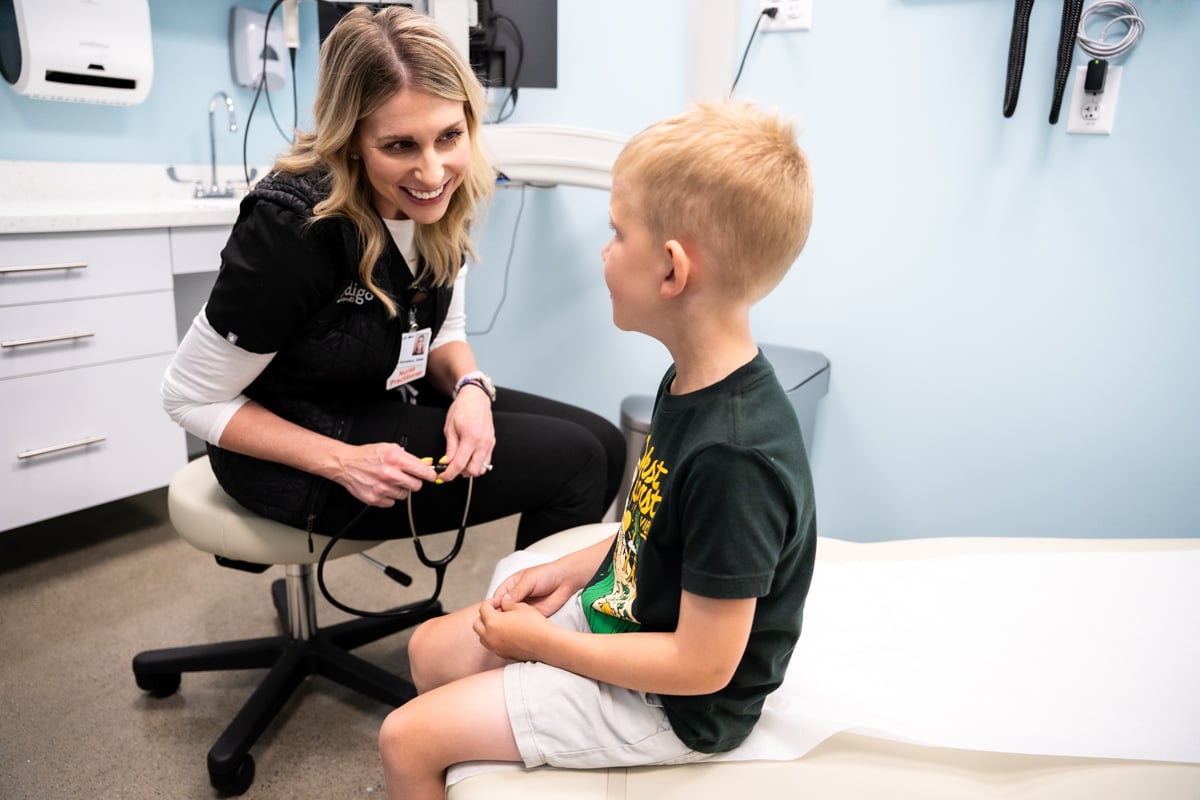Adolescence is hard, even under the best of circumstances. But when your child is faced with acne, their teen years can be especially difficult.
It’s estimated that more than 85 percent of teens are affected by some form of acne. Some have mild symptoms that can be easily managed while others can have severe issues that require medical treatment. Regardless, teen acne should never be shrugged off as a rite of passage.
In the words of a bazillion wise teens, “Acne sucks.” And it can cause significant difficulties for your child that can go far deeper than what’s on the skin’s surface.
What causes teen acne?
Puberty is the most common cause of acne in teens. Hormonal changes during adolescence can trigger oil glands to become overactive, which can cause the pores or hair follicles to become blocked. Excess oil can also result in bacterial growth. Acne forms when blocked pores become inflamed or infected, resulting in skin bumps.
Other causes that trigger increased oil production include:
- Hormonal changes due to birth control pills, menstrual periods and pregnancy.
- Oil-based face creams and cosmetics.
- Hair dyes and certain hair products.
- Excessive sweating during exercise.
- Stress
- Family history.
- Certain medications, including treatments for bipolar disorder, depression and seizures.
What are the types of acne?
There are four main types of acne:
- Whiteheads appear when clogged pores close and bulge.
- Blackheads appear when a pore clogs and stays open. The area darkens when exposed to air. (That’s right. Blackheads may be unsightly and annoying, but they have nothing to do with dirty skin.)
- Pimples, or inflammatory acne, form when the walls of the pore break and allow oil, bacteria and dead skin cells to form under the skin. Raised lesions form that may or may not contain pus.
- Nodules are painful and inflamed bumps that form deep within the skin. This is the most severe type of acne and is more likely to leave permanent scars.
What are the psychological effects of teen acne?
Mild or severe, acne can affect more than physical appearance. It can also take a toll on your teen’s emotional health.
According to the American Academy of Dermatology Association (AAD), research shows that people with acne say they feel unattractive, embarrassed or self-conscious. When teens are worried about their appearance, they’re more likely to develop depression and anxiety, low self-esteem or self-confidence, poor self-image and a sense of isolation. Teen girls are especially affected.
The AAD has also found that the longer acne lasts, the more likely it is to adversely affect a teen’s emotional wellbeing.
How can my teen prevent and manage their acne?
There is no magic solution that cures or prevents acne, but there are ways to keep it under control and reduce the frequency and severity of breakouts.
Encourage your teen to:
- Gently wash the affected area once or twice daily with a mild cleanser and warm water. It’s also important to cleanse skin after exercising since sweat can also clog pores.
- Avoid scrubbing or excessive exfoliating that can irritate the skin and worsen acne.
- Moisturize daily with oil-free and noncomedogenic products that won’t block pores.
- Remove makeup nightly.
- Use non-oily hair products.
- Avoid touching or popping pimples. Squeezing pimples can push bacteria, dead skin cells and oil deeper into the skin, which can cause more swelling and redness and increase the chance of scarring.
- Limit time in the sun. Overexposure to the sun (and tanning beds) can damage skin and increase inflammation. If your teen is using acne medication, some prescription treatments make the skin more sensitive to the sun’s UV rays.
- Avoid wearing caps or hats that can cause pimples along the hairline.
- Wear loose-fitting clothing. Tight or restrictive clothes can worsen chest or back acne.
- Try over-the-counter treatment. For mild acne, non-prescription topical products may help remove dead skin cells and excess oil that can clog pores. These include acetic acid, benzoyl peroxide, salicylic acid and sulfur.
Fast, easy, refreshing care: Indigo Health can treat your teen’s acne
It’s important your teen understands that it may take time to see results. If they are taking all the right steps to manage their acne but their blemishes aren’t under control after six to eight weeks, it’s a good idea to see a doctor. It’s also vital to seek medical care if acne is severe or a pimple becomes increasingly swollen, red and painful, which may indicate an infection. Early treatment is important to avoid scarring and help prevent future breakouts.
At Indigo Health, you can connect with an Online Care provider within minutes, from wherever you are. All you need is a mobile phone, computer or tablet. Videos visits are available from 8 am to 8 pm, every day.
Your teen is unique and so is their acne treatment. During their appointment, an Indigo provider will assess your child’s symptoms and history. They may also prescribe topical or oral medication (or a combination of both) to reduce inflammation, redness and bacteria. They’ll also schedule a follow-up appointment to see how your teen is doing and determine next steps in their treatment.
If your child’s acne is severe and requires a higher level of care, your Indigo provider will happily coordinate a referral to a dermatologist.
Learn more about Indigo Health and Indigo Online Care.


